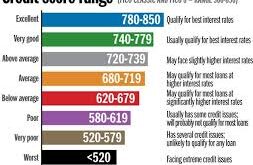Credit Score Verification: Guide to Ensuring Accuracy and Trust. Your credit score plays a crucial role in determining your financial health, influencing everything from loan approvals to interest rates. Verifying your credit score ensures accuracy, protects against identity theft, and helps maintain a strong financial profile. In this guide, we will explore the importance of credit score verification, how to check your credit score, and best practices for maintaining accuracy.
What is Credit Score Verification?
Credit score verification is the process of checking and confirming the accuracy of your credit score as reported by credit bureaus. This process involves reviewing your credit report, identifying any discrepancies, and taking steps to correct errors. Ensuring that your credit score is accurate is essential for financial stability and security.
Why is Credit Score Verification Important?
- Prevents Financial Errors – Incorrect information on your credit report can lead to loan rejections and higher interest rates.
- Protects Against Identity Theft – Regular checks can help detect unauthorized activity.
- Improves Loan and Credit Approval Chances – Lenders rely on your credit score to assess your creditworthiness.
- Ensures Fair Interest Rates – A verified and accurate credit score helps secure better loan terms.
- Enhances Financial Planning – Understanding your credit score allows you to make informed financial decisions.
How to Verify Your Credit Score
1. Obtain Your Credit Report
The first step in credit score verification is to request a copy of your credit report. In the U.S., you can obtain free credit reports from the three major credit bureaus:
- Equifax
- Experian
- TransUnion
2. Check for Errors and Discrepancies
Once you have your credit report, carefully review it for errors such as:
- Incorrect personal information (name, address, Social Security number)
- Unrecognized accounts or inquiries
- Incorrect account balances or payment history
- Duplicate accounts
3. Dispute Inaccuracies
If you find errors on your credit report, take the following steps:
- Contact the credit bureau reporting the error.
- Submit a dispute online or by mail with supporting documentation.
- Follow up until the issue is resolved.
4. Monitor Your Credit Regularly
Regularly monitoring your credit helps in:
- Detecting unauthorized activities early
- Ensuring consistent reporting across all bureaus
- Identifying areas for credit improvement
Best Practices for Maintaining an Accurate Credit Score
- Pay Bills on Time – Late payments can significantly impact your credit score.
- Keep Credit Utilization Low – Aim to use less than 30% of your available credit.
- Avoid Opening Too Many New Accounts – Frequent credit inquiries can lower your score.
- Review Your Credit Report Annually – Regular checks help prevent errors and fraud.
- Use Credit Monitoring Services – These services alert you to changes in your credit report.
10 Tips for Effective Credit Score Verification
- Check your credit report at least once a year.
- Use official sources like annualcreditreport.com.
- Compare credit reports from all three major bureaus.
- Look for unauthorized accounts and transactions.
- Report any suspicious activity immediately.
- Keep a record of your credit history and past reports.
- Use strong passwords and enable two-factor authentication for financial accounts.
- Contact creditors directly to confirm reported account statuses.
- Avoid credit repair scams; dispute errors through official channels.
- Stay informed about credit scoring models and updates.
10 Frequently Asked Questions (FAQs) About Credit Score Verification
1. How often should I check my credit score?
It is recommended to check your credit report at least once a year, or more frequently if you suspect fraud.
2. Does checking my credit score lower it?
No, checking your own credit score is considered a soft inquiry and does not affect your credit.
3. What should I do if I find an error on my credit report?
Dispute the error with the credit bureau and provide supporting documentation.
4. Can I dispute multiple errors at once?
Yes, you can dispute multiple errors in a single request to the credit bureau.
5. How long does it take for a dispute to be resolved?
Credit bureaus usually take 30 to 45 days to investigate and respond to disputes.
6. Do credit monitoring services help prevent identity theft?
Yes, they provide alerts for suspicious activity, which can help prevent fraud.
7. How do lenders use my credit score?
Lenders use your credit score to determine your eligibility for loans and the interest rates they offer.
8. Can closed accounts still impact my credit score?
Yes, closed accounts with a history of late payments can remain on your report for up to seven years.
9. What is the difference between a hard and soft inquiry?
A hard inquiry occurs when a lender checks your credit for a loan, potentially affecting your score, while a soft inquiry does not impact your score.
10. Can paying off debt improve my credit score?
Yes, reducing outstanding debt can help improve your credit utilization ratio and increase your score.
Conclusion
Credit score verification is a critical step in maintaining financial security and ensuring that your credit history accurately reflects your financial behavior. By regularly reviewing your credit report, disputing inaccuracies, and following best practices, you can protect your financial health and improve your access to credit. Staying proactive with credit monitoring and responsible financial habits will not only enhance your credit score but also provide peace of mind when applying for loans and financial opportunities.
 credit.suarajatim.com
credit.suarajatim.com
